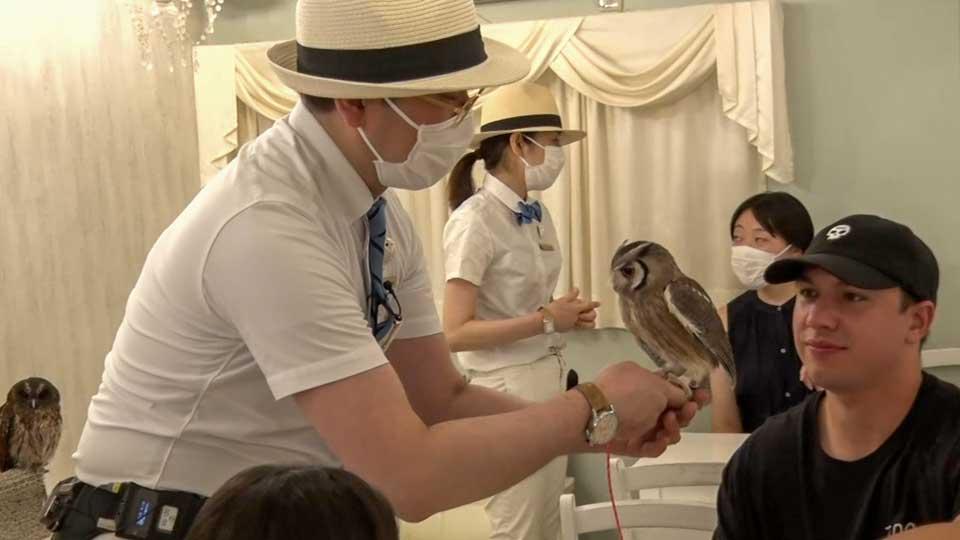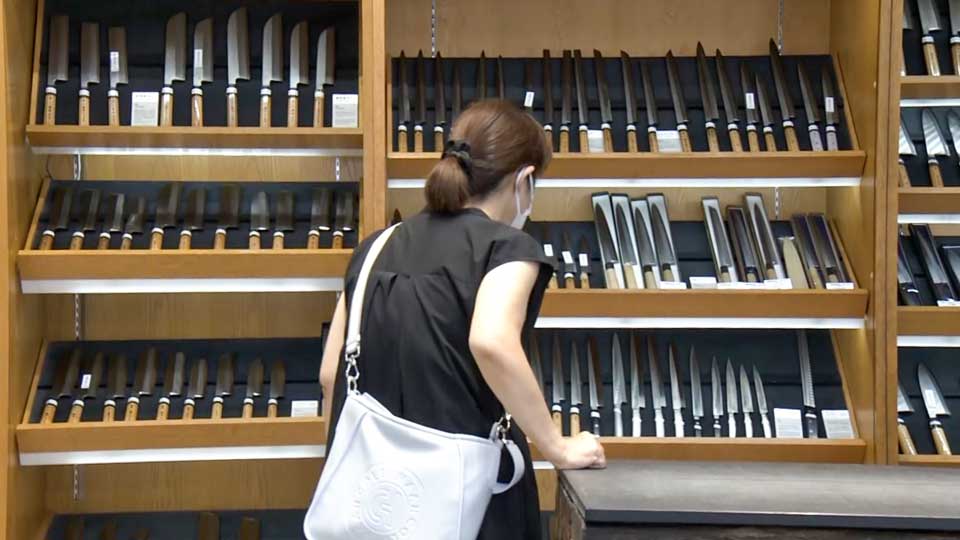"It's 100 guests versus zero now. There's no one [from abroad]," says owl cafe owner Yabe Shunsaku. The "owl concierge" and his wife run a cafe where guests can see 36 of the birds up close. Their business is in Tokyo's Akihabara area, which once drew hordes of overseas visitors interested in electronics, anime and gaming.
Animal cafes are popular with foreign tourists, and Yabe's Akiba Fukurou is no exception. Before the pandemic, some 2,000 foreign guests visited the cafe every month. In fact, Yabe says, 98 percent of their customers were from abroad.

Japan's cautious reopening
Japan has relaxed its entry restrictions for overseas travelers in increments as the coronavirus pandemic has eased.
On Wednesday, officials further loosened some of the rules. They raised the daily cap on the number of people entering Japan to 50,000, up from 20,000. No one who has received a third vaccination has to show proof of a negative PCR test.
This follows the June reopening of the country to foreign tourists after a hiatus of more than two years. Visitors from abroad were allowed back in on the condition they join a tour group with a guide. That did not prove particularly appealing, and as a result just over 8,000 tourists arrived in June and July.
Tourists are now allowed to move about freely, but must book flights and accommodation through a travel agency. They also require a visa.
Hitting business hard
Tokyo-based research firm Teikoku Databank says that as of early September, the pandemic had forced more than 4,000 companies out of business. Restaurants were the hardest-hit, with 607 businesses going under. There were 508 in the construction sector, 209 among food wholesalers, and 163 in the hotel industry.
"Many businesses that focused on foreign travelers are going under," says Nakanishi Yasuhiro, president of a company that runs the Tsunagu Japan website, which provides information for international travelers in eight languages. "These include hostels, guesthouses and spots that offer tourism experiences."
Nakanishi's company surveyed 1,700 prospective travelers in 52 countries in early July. More than 70 percent of respondents said they would stay away or would probably stay away from Japan because of the need to be part of a tour group.
Even though this is no longer required, Nakanishi says having to involve a travel agency will still be a barrier, so the impact of the relaxation will be limited.

Something missing
Tokyo's Kappabashi district, famous for its wide array of shops selling cooking tools, is one of the many places in Japan that has been dealt a serious blow by the drop in tourist numbers. At the Kama-Asa kitchenware shop, sales are down sharply. Before the pandemic, about half of the customers were foreigners.
"There were days in which we didn't use Japanese at the shop, but those times are gone," says Kama-Asa's Yurioka Miki. "We haven't seen a resurgence in the number of foreign customers."
Earlier this year, the shop set up a site for online sales and started shipping items abroad. "The pandemic has given us an opportunity to explore new sales channels and ways of meeting customer needs," says Yurioka.

Although the website has become a permanent part of the business, it's no replacement for the in-person experience. "We hope to get back to a situation where customers from overseas can hold items in their own hands and decide what's right for them."
Adapting to survive
The couple at the owl cafe also managed to find a way to stay in business. They upped their website and social media game to reach more potential customers in Japan. They also started offering support to other owl owners as a side business.
"I knew if I waited any longer, our business would be ruined," says Yabe. To cover food and medical bills that run into the thousands of dollars every month, he also turned to a crowdfunding website. Nearly 800 people donated, committing about 70,000 dollars in total. "Many people have provided support, and the money buys us a bit of time," says Yabe.
For Yabe and his wife, the cafe is not just a business. It's a labor of love. Closing it would be like losing family. "Even when we have had no customers, I have not been able to think about the possibility of closing the cafe," says Yabe, "I couldn't bear to lose my owls."

